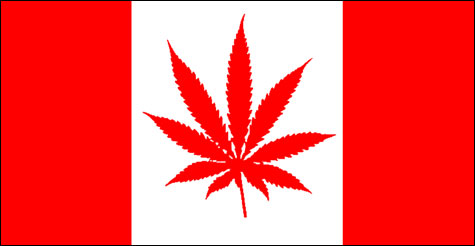
In 2004, a newspaper report appeared in the Guardian — the biggest daily newspaper on Prince Edward Island (PEI) — that was at odds with the outside world’s image of the idyllic Canadian province. Two bullets had hit local resident Kenneth Rae MacFarlane while he was home alone in the midst of a blizzard. With the help of snow-plow operators, an ambulance and a police team eventually reached him. He survived the attack, but ended up in court with some explaining to do. It seems in the course of investigating the shooting — so rare on the island that emergency-room physicians are routinely sent for training to Baltimore, where such injuries are a dime a dozen — police made an unexpected discovery. MacFarlane’s home housed an elaborate indoor pot-growing operation, with two rooms dedicated to cannabis cultivation and a third undergoing conversion.
When you think of PEI, you probably come up with crisp, clean-cut tourist-brochure images: lush and rolling hills, tranquil ocean beaches, villages of whitewashed cottages and, inevitably, the smiling face of the island’s indefatigably cheery heroine, Anne of Green Gables. But while Lucy Maud Montgomery’s fictional Edwardian character maintained her Pollyanna disposition on the strength of nothing but her spunk and a cheerily romantic vision of how life should be, it seems modern-day islanders have discovered another way to smile through the summer and avoid the blues during the bleak local winters.
A recent issue of the Guardian, for instance, featured the headline POLICE SEEK HELP FINDING MARIJUANA GROWERS, followed by a lurid story about local pot cultivators and a warning to the populace to be on the lookout for suspicious activities along country lanes and farm fields.
Royal Canadian Mounted Police (RCMP) spokesperson Sergeant Denis Morin, located in the capital of Charlottetown, admits that there is a something of problem — and his statistics prove it. The number of plants seized through the end of May (250) in areas of RCMP jurisdiction — excluding the island’s four small cities, which have their own independent police departments — already exceeds the 200 plants seized in all of 2007.
To be sure, PEI — where Canada’s province-by-province alcohol prohibition started first and ended last, in 1948 — is still largely a bastion of clean-cut, yesteryear values. A number of island communities remain defiantly dry. But it is also home to a thriving cottage industry that includes both indoor hydroponic pot production — aided by the inexpensive electricity the island imports from Quebec — and a more daring coterie of growers who take advantage of the island’s perfect summer climate and endless fields of spuds, soybeans, and corn to pursue small-scale cultivation en plein air.
Live and let smoke
Getting an authoritative picture of the province’s pot industry is difficult. The island is largely rural with a relative lack of crime that translates into a thinness of policing. In fact, outside of the cities and a few larger towns, police are almost invisible. Perhaps, too, there’s an Anne of Green Gables–like refusal to admit to inconvenient truths.